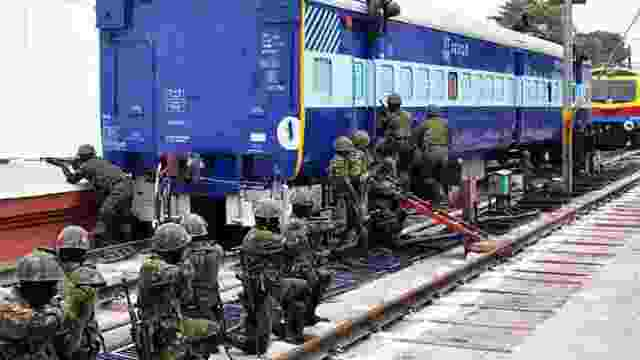Enhancing Railway Security: The Role of CORAS in Indian Railways
Introduction:
The Indian Railways, known for its vast network connecting millions across the country, is a lifeline of transportation. With millions of passengers relying on trains every day, ensuring their safety and security is of paramount importance. To address the evolving security challenges faced by the railways, the Indian government introduced a specialized unit known as CORAS (Commandos For Railway Security). This unit, established within the framework of the Railway Protection Force (RPF), aims to bolster security measures and respond effectively to various threats within the railway infrastructure.
Understanding the Purpose of CORAS:
CORAS, or Commandos For Railway Security, serves a crucial role in enhancing security within the Indian Railways. While the Railway Protection Force (RPF) is responsible for maintaining law and order and protecting passengers and railway property, there was a recognized need for a specialized force to address specific security challenges unique to the railway environment. CORAS was established to fill this gap and provide a higher level of security and response capabilities.
Roles and Responsibilities:
The primary responsibility of CORAS is to handle critical situations related to railway security swiftly and effectively. This includes dealing with incidents such as damage to railway property, disturbances causing disruption of train operations, attacks on passengers or staff, hostage situations, hijackings, and disaster scenarios. CORAS commandos undergo rigorous training to prepare for these situations, equipping them with the necessary skills and mindset to respond decisively to any threat or emergency.
Training and Facilities:
CORAS commandos undergo extensive training to ensure they are prepared for the diverse challenges they may encounter. This training covers various scenarios, including counter-terrorism tactics, hostage rescue operations, and disaster management procedures. The commandos are trained to remain calm under pressure and make quick, informed decisions to protect passengers and railway infrastructure.
Furthermore, CORAS commandos are equipped with modern weaponry, communication systems, and protective gear to enhance their operational capabilities. This includes firearms, tactical gear, and communication devices to maintain coordination and communication during operations. Additionally, the commandos have access to specialized vehicles and equipment tailored to their operational requirements.
Recent Developments and Initiatives:
In August 2019, CORAS was officially launched by the Minister of Railways and Commerce & Industry, Shri Piyush Goyal, marking a significant milestone in railway security. As part of ongoing efforts to strengthen security measures, a commando training center for CORAS is being established in Jagadhri, Haryana. This center will serve as a hub for training CORAS commandos to ensure they remain proficient and ready to respond to emerging threats.
Furthermore, to enhance surveillance and monitoring capabilities, a network of CCTV cameras is being deployed at every railway station. These cameras provide real-time footage and links to local stations, Government Railway Police (GRP), Railway Protection Force (RPF), divisional offices, and central monitoring centers. This integration of technology enables authorities to detect and respond to security threats more effectively, thereby enhancing overall passenger safety.
Conclusion:
CORAS plays a critical role in enhancing security within the Indian Railways, complementing the efforts of existing security forces such as the Railway Protection Force (RPF). Through specialized training, modern equipment, and coordinated efforts, CORAS commandos are prepared to respond effectively to various security challenges, ensuring the safety and security of passengers and railway infrastructure. With ongoing initiatives and investments in technology and training, CORAS continues to evolve as a formidable force in safeguarding the nation's railways.





.jpg)
.jpg)
.jpg)
.jpg)
.jpg)
.jpg)


